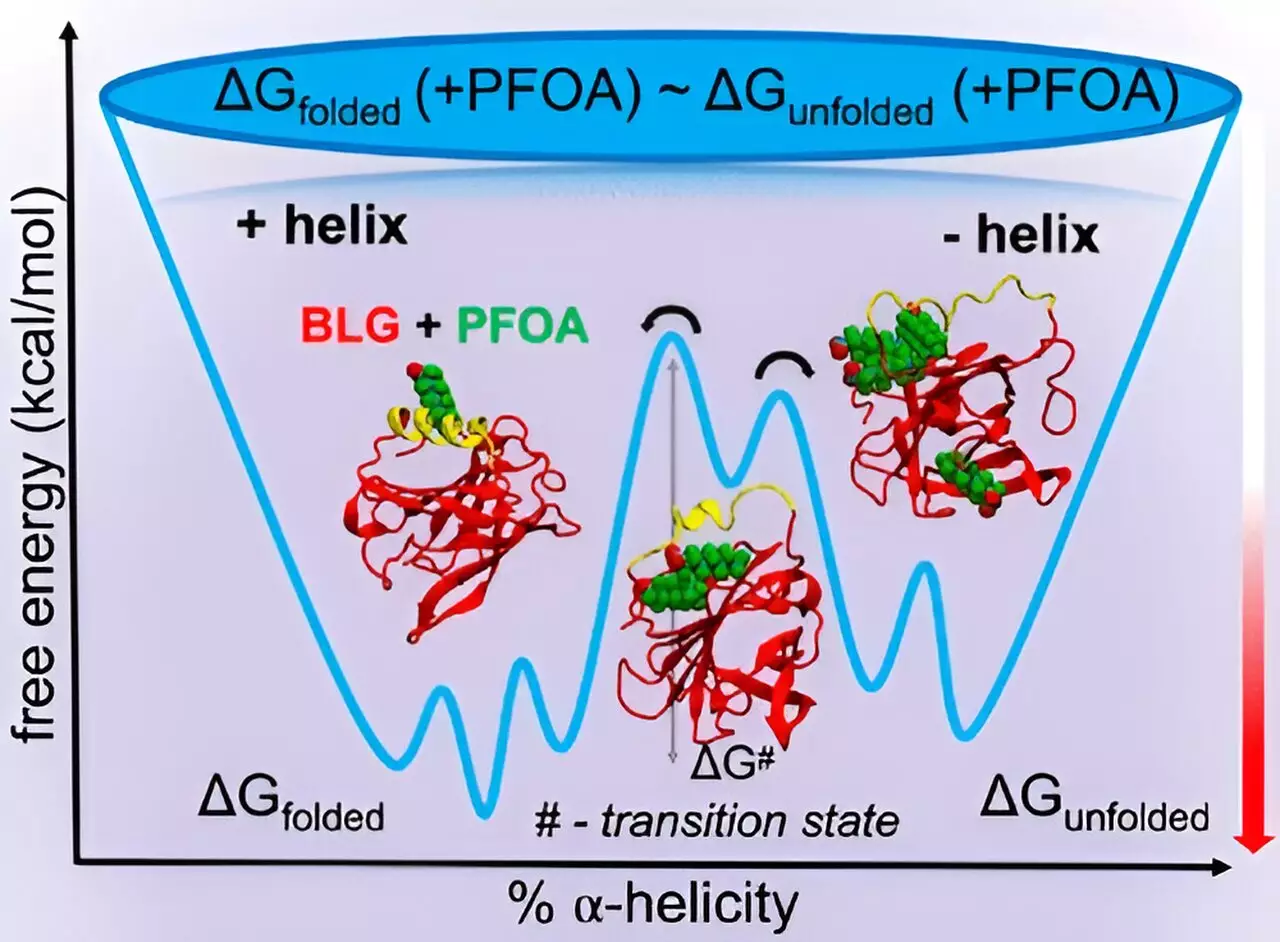Recent studies conducted by researchers at The University of Texas at El Paso have shed light on the harmful effects of nanoplastics and per- and polyfluoroalkyl substances (PFAS) on human health. These manmade compounds, commonly referred to as forever chemicals, have been found to disrupt biomolecular structure and function, particularly affecting proteins critical to human development and function.
The research team focused their studies on three proteins: beta-lactoglobulin, alpha-lactalbumin, and myoglobin. It was discovered that nanoplastics and PFAS can completely alter the structure of these proteins, converting alpha helix structures into beta sheets. This change in protein structure can have far-reaching implications, potentially leading to developmental issues in infants and compromising vital bodily functions.
Beta-lactoglobulin, a protein found in the milk of sheep and cows, plays a crucial role in vision and brain development in infants. Exposure to nanoplastics and PFAS has been shown to decrease the binding efficiency of beta-lactoglobulin to retinol and fatty acids, which can result in significant developmental issues in neonatal infants. Additionally, PFAS was found to bind to beta-lactoglobulin, turning it into a carrier for these harmful compounds.
Alpha-lactalbumin, present in human breast milk and essential for lactose synthesis, can be affected by nanoplastics and PFAS. Disruption of the structure of alpha-lactalbumin can impact lactose formation, potentially leading to compromised immunity and reduced mineral absorption in infants.
Myoglobin, a protein crucial for oxygen storage in mammals, was also found to be compromised by nanoplastics and PFAS. This disruption could result in health issues such as breathlessness and anemia, highlighting the serious consequences of exposure to these manmade compounds.
The groundbreaking research conducted by the UTEP team has significant implications for public health and environmental policies. The findings underscore the importance of scientific research in addressing global challenges and developing safer alternatives to harmful materials. The study also highlighted the need for further investigation into the effects of other plastics and PFAS compounds on human health.
The research conducted by The University of Texas at El Paso provides valuable insights into the detrimental effects of nanoplastics and forever chemicals on human health. By understanding how these compounds disrupt biomolecular functions, scientists can work towards developing safer alternatives and mitigating the negative impacts on human health and the environment. The findings from these studies emphasize the importance of continued research and the need for proactive measures to protect public health from the harmful effects of manmade chemicals.


Leave a Reply